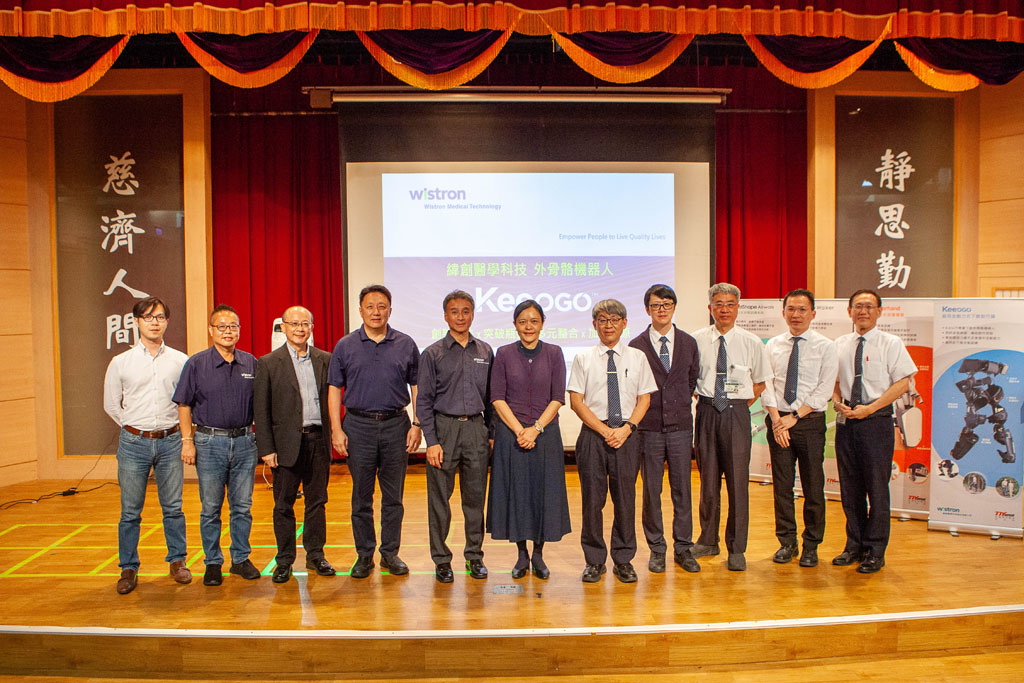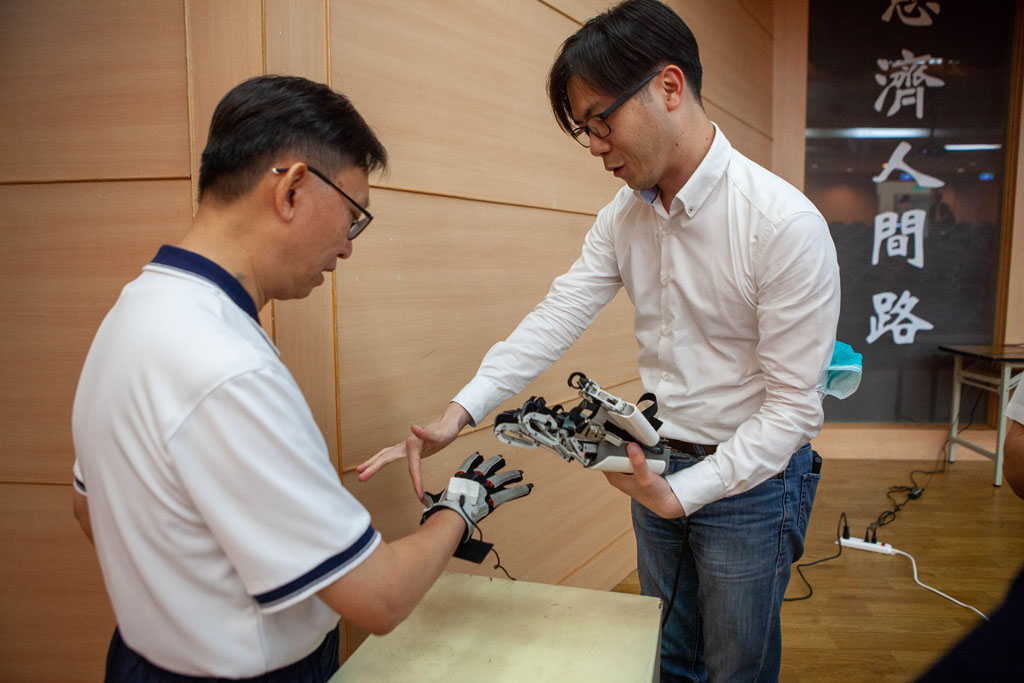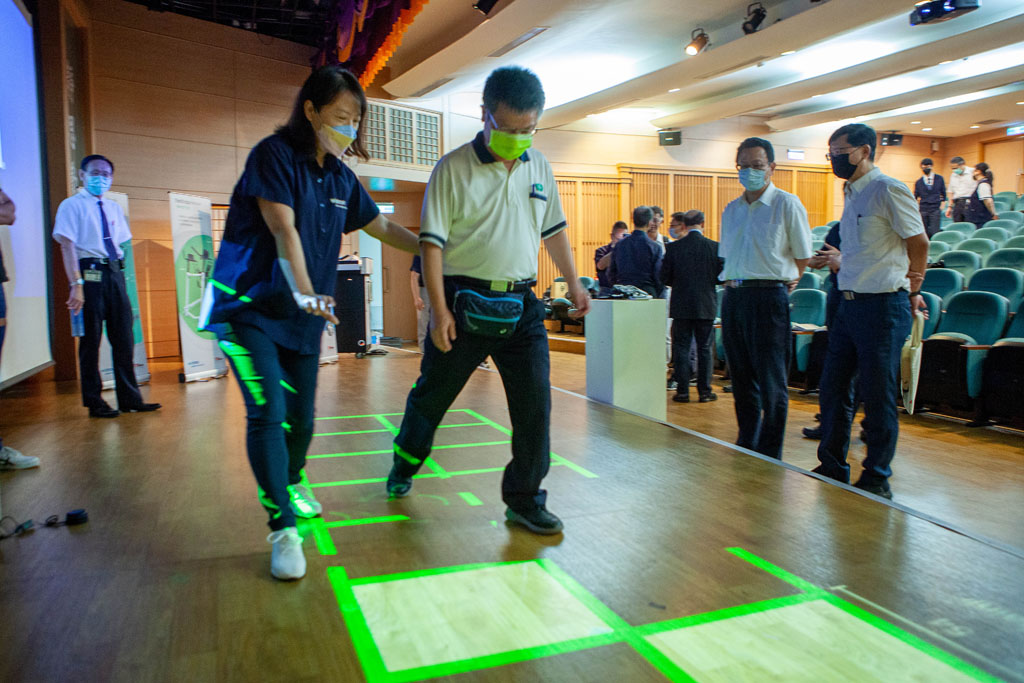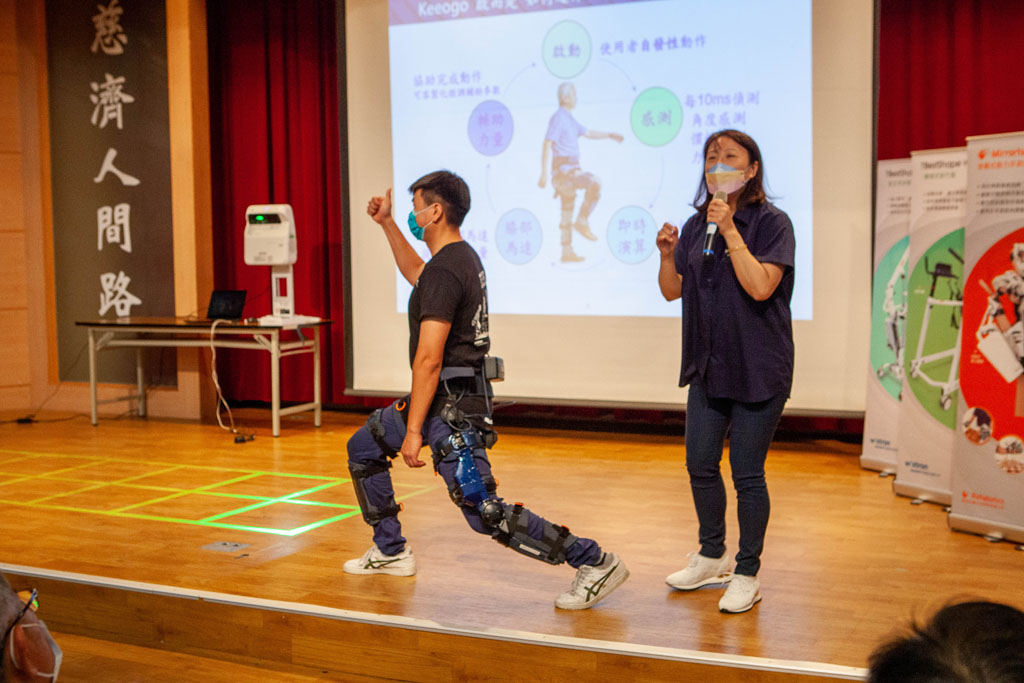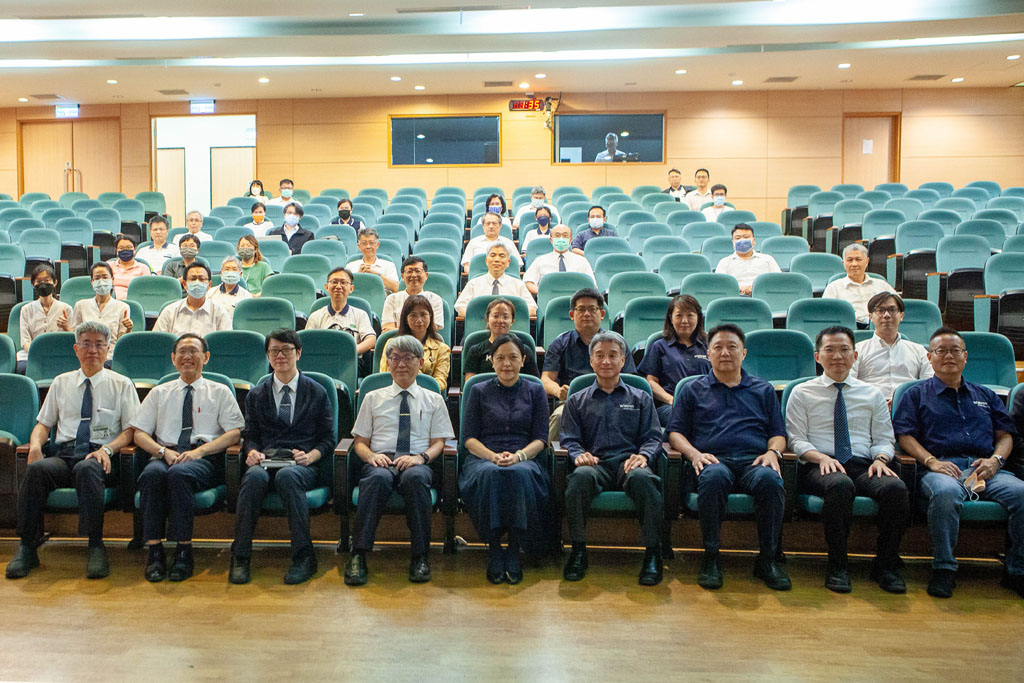Tzu Chi University Collaborates with Wistron to Hold a “Human-Centered Intelligent Health” Themed Lecture and Product Exchange Event
Tzu Chi University and Wistron Medical Technology Corporation recently co-hosted a unique lecture and product showcase titled “Human-Centered Intelligent Health.” This event aimed to foster collaborative efforts between the academic and industrial sectors. With the application of artificial intelligence, the occasion melded long-term care services with rehabilitation training-related equipment and systems. Three engaging sessions were presented to share insights and experiences.
Faculty members from Tzu Chi University were given the opportunity to interact with advanced tools like exoskeleton robots and neural rehabilitation robots. They gained in-depth knowledge about the evolution and applications of smart assistive technologies in the realms of rehabilitation, stroke, and orthopedic postoperative care. The event also allowed for dialogue about the future trajectory of medical rehabilitation. Looking ahead, both Tzu Chi University and Wistron Corporation are eager to strengthen their collaborative efforts to serve public well-being more effectively.
University President Ingrid Liu expressed her gratitude in a speech for the visit of the Wistron team to Tzu Chi University. She thanked them for imparting valuable industry insights about the application of artificial intelligence in healthcare and sharing specific instances of its use. She conveyed her hopes that through such interactions, the University’s faculty members can be inspired to view their research from the perspectives of end-users and the industry. She emphasized the need to ensure that research findings are effectively employed in the field of rehabilitative therapy. She asserted that research results can only truly benefit society when they are put into practical use. Moreover, she stressed the importance of comprehending patient needs and staying abreast of industry trends in transforming research into applicable solutions. She concluded that only by doing so can we genuinely fulfill the objective of alleviating human suffering and preserving lives.
Wistron Medical Technology Corporation’s Deputy General Manager, Chao-Jen Chuang, stated that the company, founded just six years ago, was fortunate to coincide with the digital transformation wave in the healthcare field, thus enabling rapid growth. Chuang emphasized that the rehabilitation sector closely intersects with the everyday lives of patients and their families. The Wistron team has been diligently studying its impact on these individuals, suggesting that, “If the right decision is made at a pivotal moment, the outcome is merely a matter of time.” Therefore, they remain hopeful that their collaboration with Tzu Chi will yield significant results within a brief timeframe.
Exoskeleton robots, frequently seen in Taiwan, are primarily utilized to aid patients with spinal cord injuries. The Keeogo, developed by Wistron, is a human-led system that instantly calculates and analyzes the user’s spontaneous movements. By aiding in completing these movements, it expands both the range and the nature of possible motions for the user.
Neurorehabilitation robots, such as Synslai and the Mirror Hand, represent core products in this sector and can be employed across various settings. These include hospitals, community institutions, and even home use, broadening the reach and application of these advanced devices.
Notably, these products have already been introduced into large hospitals and community healthcare institutions where they serve as invaluable tools for physical therapists. Their integration into therapeutic routines marks a significant advancement in treatment and rehabilitation processes, showcasing the impactful role of technology in modern healthcare.
Wistron harnesses the power of natural language processing, medical image analysis, and big data analytics to develop a comprehensive digital pathology service platform. This platform targets smart healthcare, specifically focusing on kidney disease management, chronic disease care, and holistic care for all ages. With Taiwan projected to become a super-aged society by 2025, a pressing challenge is to delay disease progression in the elderly, ease strain on caregivers, and ensure a high standard of care.
To tackle this issue, Wistron introduces advanced AI prediction and recommendation techniques, which integrate seamlessly with the “Wisdom Go” AI care system. By connecting with equipment in the long-term care industry, this innovative AI system can auto-generate activity plans tailored to individual users’ capabilities, thereby facilitating ability recovery.
Moreover, the system pairs with the “Lovein Cognitive Rehabilitation System.” This platform uses a combination of projection imaging and sound-light real-time feedback with various exercise equipment, designed to make rehabilitation more engaging. By making activities more appealing, it helps to maintain or enhance users’ health, effectively contributing to better quality of care.
The event offered valuable insights and experiences to both the faculty members and students of Tzu Chi University, enriching their understanding and knowledge. We eagerly anticipate more such initiatives in the future that facilitate dialogue and collaboration between industry and academia. These opportunities for exchange bolster interaction and also promote a synergistic relationship that benefits both sectors.

